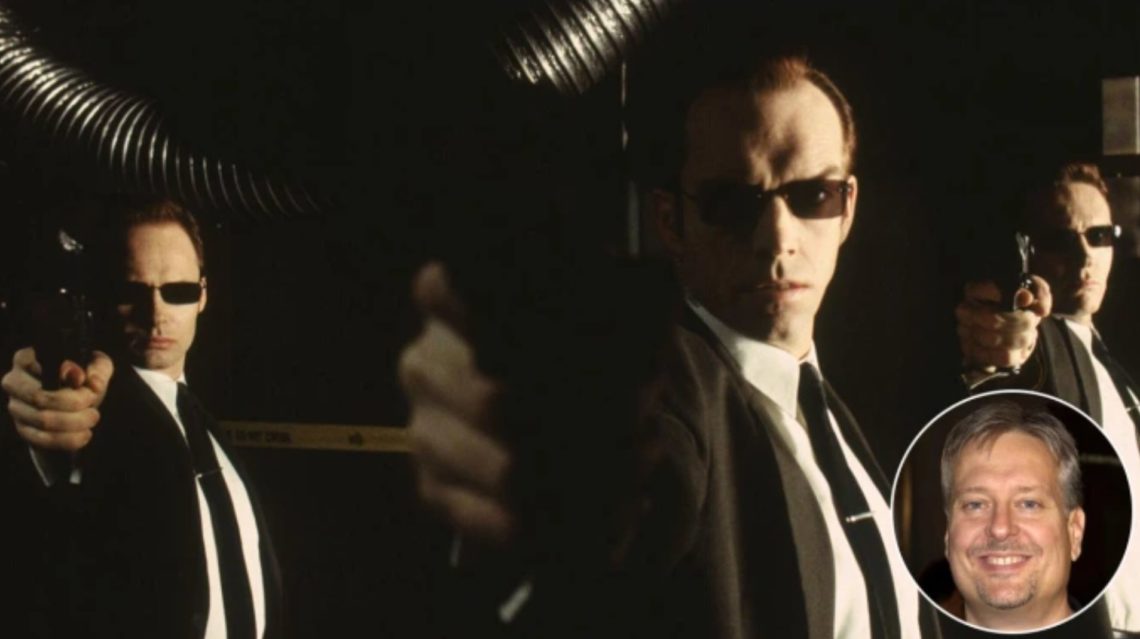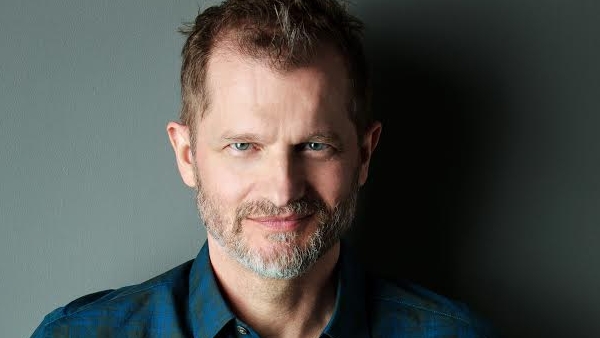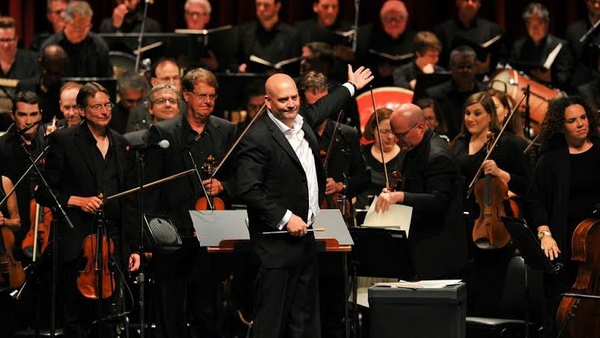In a world of remakes and reboots, one property we thought we’d never see expanded or revisited was the universe of The Matrix. It was, and still is, a landmark film, one that raised the bar for filmmakers and the industry as a whole. A triple-kick of story, visuals and action, The Matrix was a high watermark for cinema. As the series expanded, the arcs of the three leads finished in a less than satisfying (or deserving) way, yet it still seemed the most logical and inescapable end. Fate? Perhaps.
The third film culminates in an uneasy truce between humans and machines (and between programs themselves). More importantly it’s not a happy ending despite a glorious sunrise, the green haze noticeably lifted, and some hopeful notes in Don Davis’ score; it’s just the end of a cycle as foretold in The Architect’s techno babble exposition. Further, the entire premise of this world – built upon the mind-bending plot of the first film where machines control and live off humans as a power source – is that everything is cyclical and therefore inevitable. Expanding that to the bigger narrative laid out across the sequels, and widening the scope of the story to include the machines, the entire nature of life becomes as routine (and necessary) as rebooting a computer. Everything seems significant, and in the end, nothing is. That’s nihilism for ya.
So here we are, nearly 23 years after the release of the first film and just a couple weeks away from the next installment. Woah is right! Leading up to that, I’ve been thinking back on all the great moments and messages in the series (and The Animatrix), and am continually amazed at how much the music contributed to the success of the Wachowski siblings’ vision. As such, I was honored to have been able to speak to composer Don Davis (my first story with The Hollywood Reporter) in celebration of the 20th anniversary of The Matrix. I’ve held onto the rough audio of our interview since 2019 and would like to finally share the recording of our full session with you.
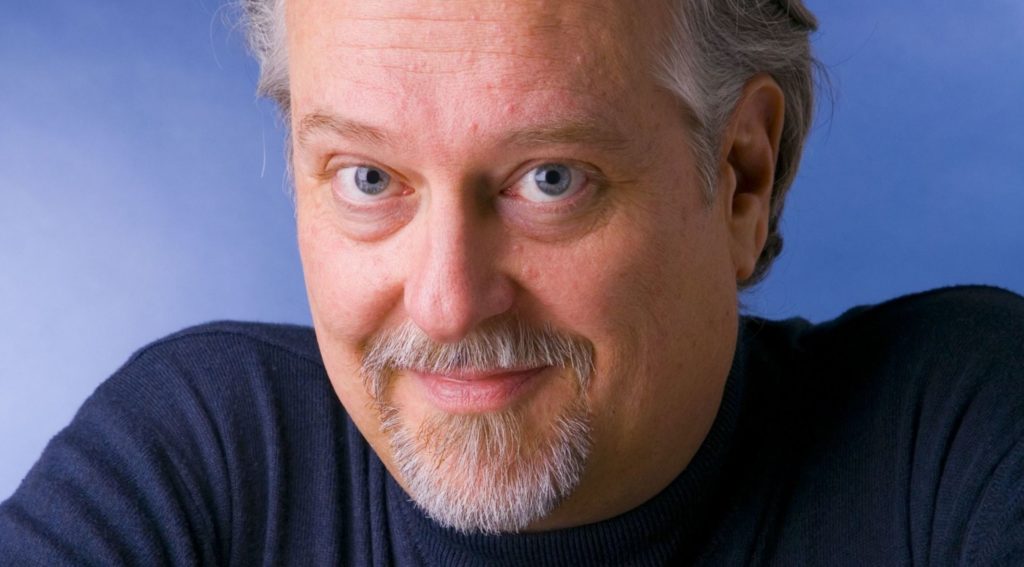
While it was never intended to be used in this format – it’s recorded on speaker phone and you can hear a lot of my scribbling and note taking in the background – there is value in hearing things directly from the “architect” of this unique sonic landscape. I actually didn’t use many direct quotes in the piece for The Hollywood Reporter, so it’s nice to hear things from the source. Davis has stories for days about how, why, and who decided what was needed from the score.
Whether it’s the see-sawing chords, triads, a pile driver, or the nebulous sound of a waterphone, the palette for the film is impactful and one-of-a-kind. Moreover, it is minimalist and post-modern and Davis expands on that quite a bit in our session. Listening to this seasoned musician talk about particular beats of the score was great, but whenever Davis spontaneously started playing a portion of the theme we were discussing, that’s when things got really cool.
For more than an hour, we spoke about the deeper meaning and messages in the film, the first scene he worked on, and ideas the Wachowskis wanted Davis to bring to life. One fun take away from this retrospective was Davis recalling the first cue that was approved where he noted a very simple path forward, “When you do something they like, you better do it again” he says with a laugh.
Davis was really drawn to and intrigued by the deep philosophical aspects of the story. “The idea that you could make a popular movie based on Plato, and Descartes…it was a mainstream movie in which they made as much of a fictionalized narrative of philosophy as Jean-Paul Sartre did in ‘No Exit’ and his four novels. It’s all a take on Plato’s ‘The Allegory of the Cave’.”
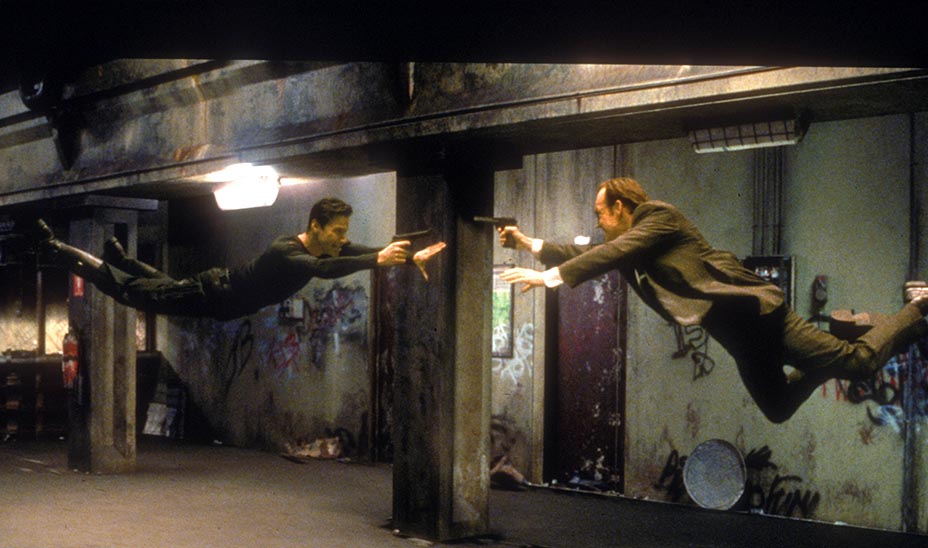
Jumping well past the success of the film and the franchise, Davis continued his connection to this music with more than a dozen live-to-picture concert events (where a full symphony plays the score in real-time). He tells us that after so many repeat viewings, “it’s really enjoyable to see how well the movie holds together” and how “as far as editing, it’s perfection” all the while laughing as he recites a line from his favorite moment from the film – the Smith/Thomas Anderson interrogation scene.
There’s plenty to unpack and enjoy throughout, but as we wrap up our session, we touch on his work with Randy Newman where he again unloads his vast musical knowledge. A true powerhouse, Davis has worked with some of the best in the business, and has a deep understanding of the art as well as love for brass (especially the trumpet).
Throughout the interview, the soft-spoken composer has no shortage of interesting stories both behind the scenes from the film and his thought process composing for films. I hope you find the stories as eye-opening as I did. One thing is for sure, once we really get into the conversation, you won’t be looking for an exit.
So sit back, and enjoy plugging back into The Matrix…
